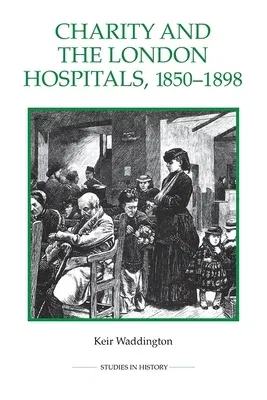A study of the development of the hospital as a economic, medical and
voluntary institution in the second half of the nineteenth century.
By the 1890s Victorians assumed that London's hospitals were facing an
endemic financial crisis which was so severe that some feared the state
might have to intervene to support an ailing voluntary system: charity
both underpinnedLondon's hospitals and proved insufficient to meet the
ever-increasing cost of care, despite the ability of those running the
hospitals to pick the pockets of the benevolent. Charity and the London
Hospitals takes these themes to study the development of the hospital as
an economic, medical, and voluntary institution in the second half of
the nineteenth century.
Drawing on a comparative study of hospital records, the author
investigates how and why Victorians contributed to show that benevolence
was rarely amenable to a single form or reason, moving on to argue that
though it remained central to the hospitals' raison d'être,
philanthropy's contribution was modified at a financial and
administrative level as hospitals shifted from being philanthropic to
medical institutions. Why this process occurred and the impact of
professionalisation and scientific medicine are also assessed, as are
the debates surrounding hospitals and the state at the end of the
nineteenth century.
KEIR WADDINGTON is Professor of History at Cardiff University.

